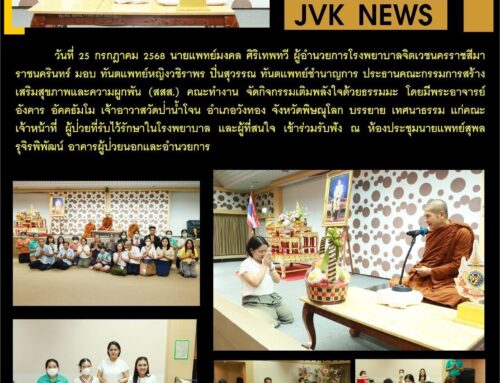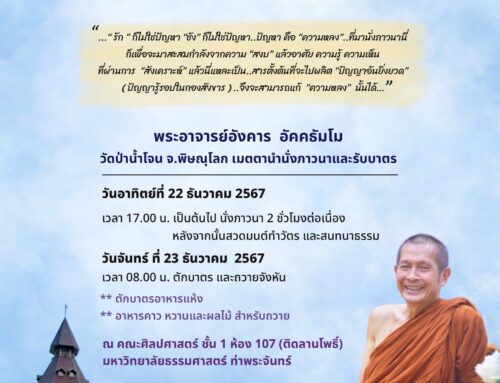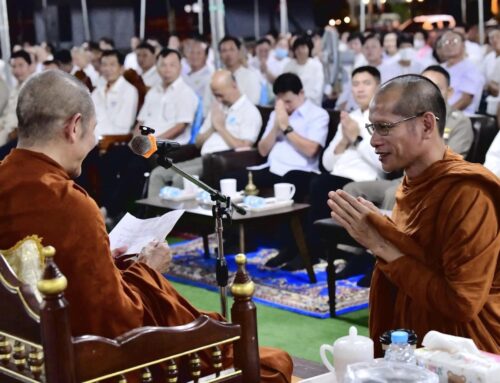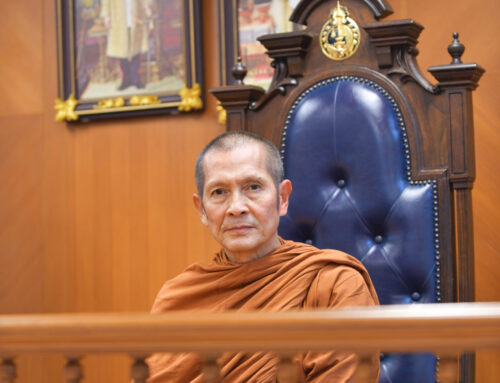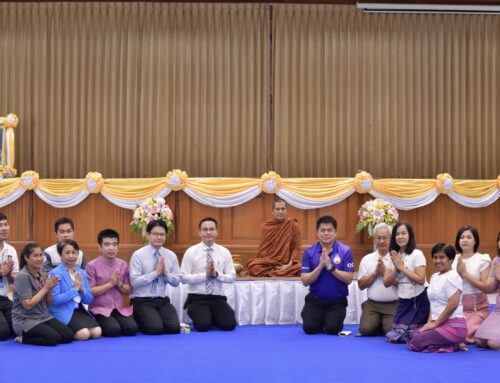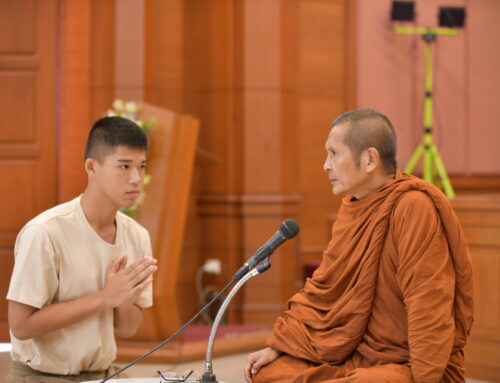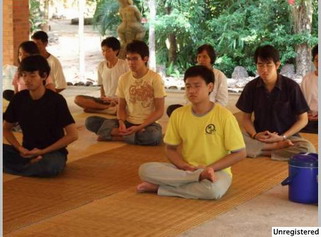
“….ทีนี้บางคนพอจะมาปฏิบัติธรรม ก็อยากมุ่งเลย อยากจะสงบ อยากจะมีฤทธิ์มีเดช อยากจะเห็นโน่นเห็นนี่ ซึ่งมันผิดทางพุทธ พระพุทธเจ้าท่านให้มานั่งดู ดูอะไร ดูตัวรู้สิ ตัวรู้อยู่ไหนล่ะ ก็เพ่งดูที่ลมหายใจเข้าออก จิตเป็นคำรวม ๆ เป็นคำกลางๆ จิตเป็นผู้รู้ ไม่รู้ว่าอยู่ตรงไหนเอ้างั้นมาจ่อที่นี่ซิ หายใจเข้า พุท หายใจออก โธ ลมกระทบที่ไหนชัด คุณก็จับที่นั่น สติระลึกรู้ลมเข้า รู้ลมออก ปะทะที่ไหนจับอยู่ที่นั่น แล้วทีนี้ถ้ามันแว้บไปไหน ก็ต้องรู้ นอกจากพุทโธ ถึงแม้แต่ฟุ้งซ่านก็ต้องรู้ สงบก็ต้องรู้ อย่างนี้น่ะ บางคนก็ไม่ชอบ พอมานั่งปุ๊บ อยากจะสงบเลย ไอ้อยากคืออะไร อยาก ไม่อยาก มันคือตัณหา เมื่ออยากสงบ มันก็ต้องไม่อยากฟุ้งซ่าน แต่มันไม่ใช่แนวทางแห่งพุทธ แนวทางแห่งพุทธ คุณทำเหตุอย่างเดียว เรื่องสงบ หรือไม่สงบ มันเป็นเรื่องของผล เหมือนคุณกินข้าวน่ะ กินไปเถอะ จะกี่คำก็ช่าง ไม่ต้องไปเรียกร้องหาอะไร ไม่ใช่กินไปบ่นไป อยากจะอิ่ม ถึงกาลถึงเวลา สมควรแก่เหตุ มันก็อิ่มเอง มันก็หยุดเอง….”
We are responsible for dealing with cause not the effects
“….Some people, who practice meditation, immediately want to be calm, to gain supernatural power, to see this and that. That is not the right Buddhist Path. The Buddha taught us to come and see. To see what? To see the knower. Where is the knower? That is to note the breathing-in and breathing-out. The mind or citta is the common word. Citta is the knower. WE do not know where the knower is. Let’s focus on the breathing in and out; inhaling, silently recite”BUD”, and exhaling, recite”DHO”. The mindfulness observes the breath wherever it touches and then, focuses on that point, and knows when the breath wanders to other things. Besides, when the practitioner recites “BUDDHO”, he should know even he is restless or peaceful. Some people do not like this. Whenever they practice meditation, they immediately want to be calm. Wanting and un-wanting are carving (tanhā). Whenever you want to be calm, you do not want to be restless. But, it is not the Buddhist way. The Buddhist way is to deal with the cause. Whether the practitioner will be calm or not, it is the result. Similarly, when you are having a meal, just have it, no matter how much you eat, it is not necessary to ask for anything. Do not complain while you are eating. If you want to be full, it reaches appropriate time and a reasonable time, you will be enough and stop.”

